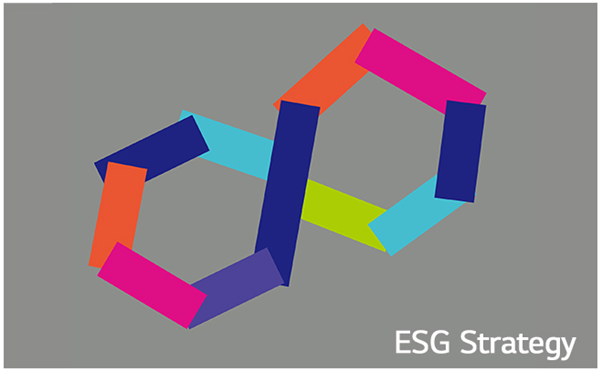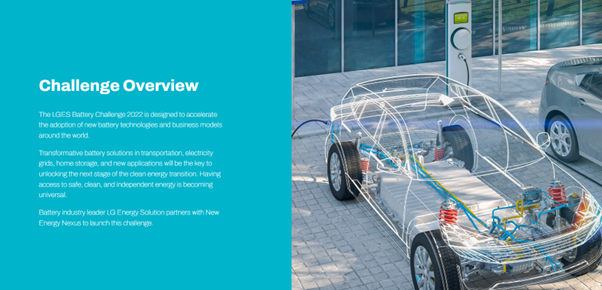As a world-leading battery innovator, LG Energy Solution (LGES) strives not only to build eco-friendly energy solutions applied with the most cutting-edge technologies, but also to benefit all human life by contributing to sustainable development for future generations. To achieve these goals, LGES upholds the Environmental, Social and Governance (ESG) strategic framework to implement roadmaps for carbon neutrality and global social impact, and carry out a wide variety of Corporate Social Responsibility (CSR) activities carefully designed to positively influence its local communities and the environment.
In order to actively respond to global changes and advance climate mitigation, LGES has set specific goals and strategies to achieve carbon neutrality. LGES is the first battery company to join both RE100 and EV100 global initiatives. RE100 aims to procure 100% of corporate power consumption from renewable energy sources by 2050, and EV100 seeks to convert 100% of company-owned and leased vehicles under 3.5t and 50% of 3.5-7.5t vehicles to electric vehicles by 2030. Furthermore, LGES is committed to achieving RE100 by 2030, 20 years ahead of what the global campaign commits, with the ultimate goal of achieving carbon neutrality across the entire value chain by 2050, and going carbon negative from 2050 and onwards.
LGES achieved a 33% conversion rate of new and renewable energy across its global business sites in 2020, ranking highest among the 14 Korean companies committed to RE100. With continued efforts to fulfill the commitment, the global conversion rate reached 44% in 2021, and is expected to reach 60% by end of 2022. In addition, LGES is the first battery manufacturer to hold a seat on the Advisory Committee of the RE100 Project Board, as it continues to inspire the expansion of renewable energy use through the design and implementation of impactful strategies. As a member of RE100 advisory committee group, LGES will focus on its global leadership to ensure that carbon reduction is accelerated in the battery industry and supply chains.
As a responsible company coexisting with local communities, LGES pays attention to social and environmental issues, and promote a culture of sharing. Hence, LGES focuses on CSR with three ESG criteria:
Shared Resilience: Fostering an environment of psychological safety for both employees and local communities through engagement and sharing activities.
Social Resilience: Supporting vulnerable social groups by providing diverse opportunities for self-improvement and achieving greater self-sufficiency.
Environmental Resilience: Facilitating higher renewable energy usage at community level to reduce global carbon emissions as much as possible.
A few ways that LGES is making a difference is its support of renewable energy facilities in isolated areas with low energy independence, as well as its significant donations to “Hopeful Green Power Generation Projects” which sponsor low-income youth. The company is also nurturing up-and-coming battery players through various competitions. For instance, the company hosts the annual ‘LGES Battery Challenge’ to discover and fund promising battery start-ups.
LGES strives to grow together with local communities where the company operates its business and carry out its social responsibility in the best way it can. As part of it, LGES Michigan (LGESMI) has been supporting low-income families as a premier sponsor of the Vista Green Project hosted by Lakeshore Habitat for Humanity. Blood Drive is another key initiative pursued by LGESMI to save many lives in the community. In Poland, LGES Wroclaw implemented engagement and sharing activities for employees to support local communities by cleaning up local parks through a partnership with Zakład Opiekuńczo-Lecznicy (ZOL), so that children have a safe and better environment to play.

